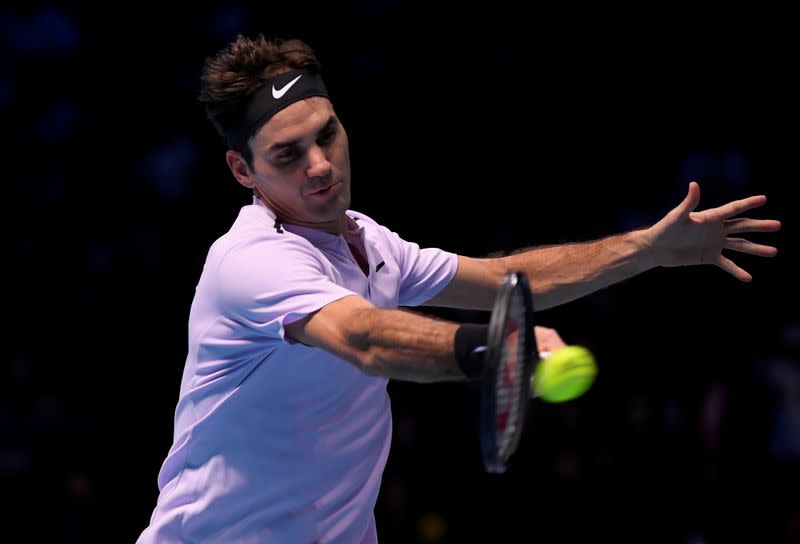Hank Aaron surely would have remembered a day when he was just a ballplayer or, better still, just playing ball.
Before the burdens were set upon him, because he was a ballplayer and he was him, here.
He died Friday, two weeks short of his 87th birthday. What came then was a national eulogy for a career, a life and an effort. Oh, the effort. Those words reflected the best of what we can be, what we’d hope for ourselves if opposed by the same antagonists, if gifted by the same game, and exposed a darkness we convince ourselves lifted with Rosa or Jackie or in Selma or on an inauguration Tuesday a dozen years ago or in the linked elbows on Main Streets last summer.
Then on an overcast Friday morning, a few days after a strong and hopeful young woman assured us, challenged us, “There is always light, if only we’re brave enough to see it. If only we’re brave enough to be it,” Hank Aaron dies and what comes to mind is not just the player but the effort, not just yesterday but today.
He once told the New York Times, “They carved a piece of my heart away,” and how then do we celebrate the man without asking again why it must be this way. Why we must do this to each other.
“I lost a hero,” Brian Jordan, the former Braves outfielder, said Friday. “As a Black boy growing up loving the game of baseball, Hank Aaron was that guy. … Seeing how strong he was through all the ignorance of this country was amazing. And how he just stayed humble through it all. It’s a tough day. A tough day for the African American community. For everybody.”
If, when he lay awake, feeling again the iron wrists and coiled legs, Hank Aaron could hear the hiss of the fastball and the breath of the crowd. If he gripped the bat cross-handed, one more swing before the sun was gone in southwest Alabama, or he was in that old ballpark on West 16th Street in Indianapolis, a Negro League shortstop at 17 years old. When the game was just the game, when it was going to be OK to be good at it, even great at it, maybe the best at it, before he had to be a hero, before he had to settle his heart, just to have his name on a lineup card.
Surely he could remember a day like those. How else was he able to smile and laugh like he did, and reach for the hands of shy little boys and girls whose parents nudged them forward, and tug on the shoulders of hundreds of grown players who in his presence went weak?
An Atlanta Brave for all of his 19 years, Chipper Jones recalled the sights of egos deflating when Hank Aaron strolled onto the field or into the clubhouse, as if for a moment to match Aaron’s own humility.
“Big eyes,” he recalled. “Slack jaws.”
The first time, Jones said, outfielder Michael Bourn stopped and turned and stared, “Like he was watching God walk by.”
Only two men — Pete Rose and Carl Yastrzemski — played in more major league baseball games than Aaron’s 3,298 (an official total that will rise as MLB recognizes the Negro Leagues as major leagues). And while the eulogy in part will be what he did in those games — the 755 home runs, the 3,771 hits, the .305 batting average, the 2,297 RBIs — there’s the matter of showing up for those games, going home from those games, the 21 hours around those games spent in a world that carved out that piece of his heart.
Those who knew him would say he had plenty to spare. They knew his anger, his resentment, but also his spirit, his decency and his generosity.
“We’re not only talking about a transcendent baseball player,” Jones said. “We’re talking about a transcendent person in American history as well. I mean, to have gone through, Jackie Robinson kind of set the stage, but Hank took it to a whole ‘nother level. When you’re talking about a Black man elevating himself in that day and age to the best in the game and embarking on a journey that would take him to the top of the home run list, and passing Babe Ruth, and all that he endured, it really is amazing. He is a beautiful human.”
Thing was, Jones continued, “He was at constant peace. While he probably had every right to be militant and angry and leery of everyone he came in contact with, he never was. He never was. Always had a gentle smile. Always had this peace about him.”
It is, perhaps, where he found himself when his own journey was nearly done, when he could only know he’d done the best he could. He’d left the rest of it, hopefully, in better shape than he’d found it. He’d held his head up. He’d swung hard and lived with the outcome. He’d become good at it, even great at it, maybe the best at it. It’d come at a hard cost, surely. But, just as surely, he could also remember a day he was just playing ball, and man was it fun, and man that ball flew, and maybe that helped.
He’d earned that.
More from Yahoo Sports:







